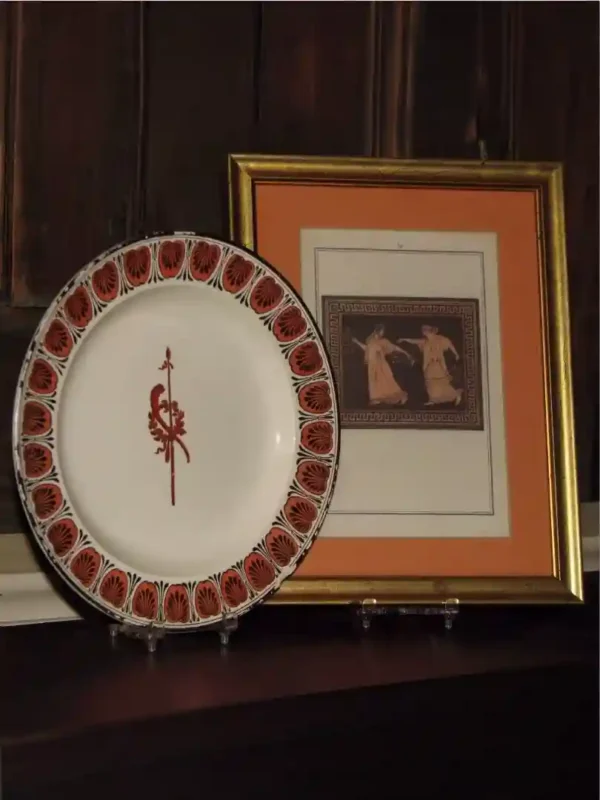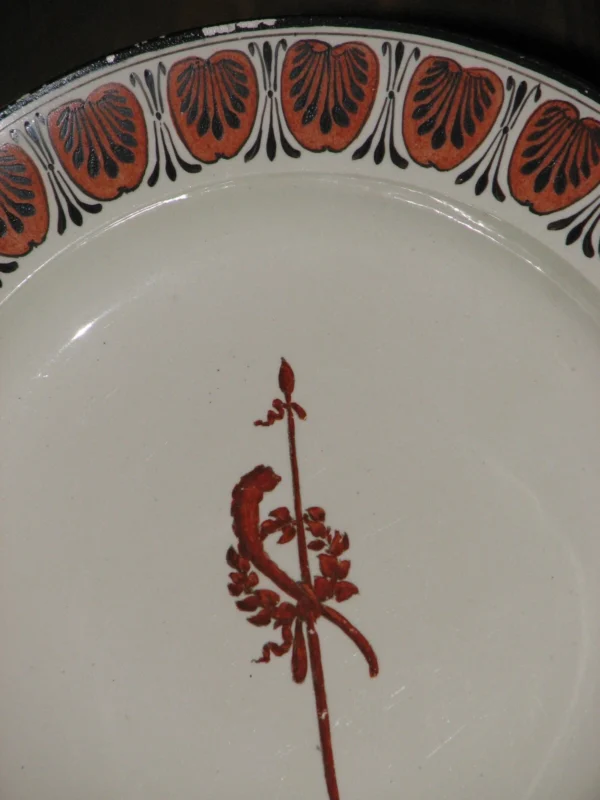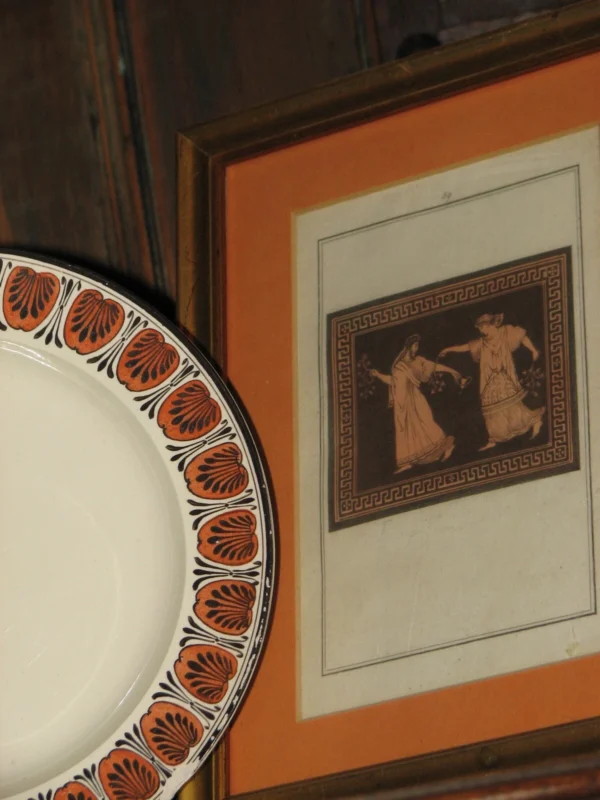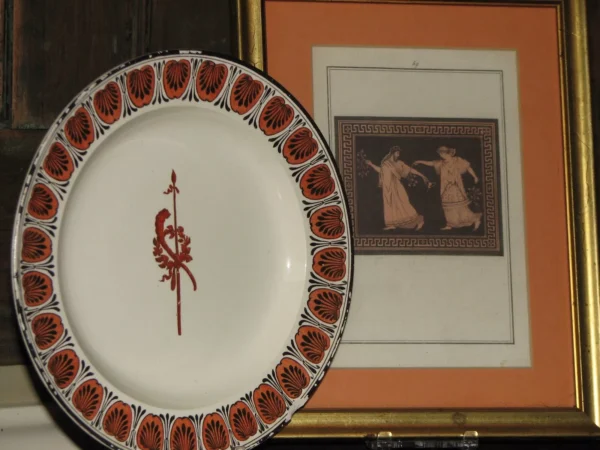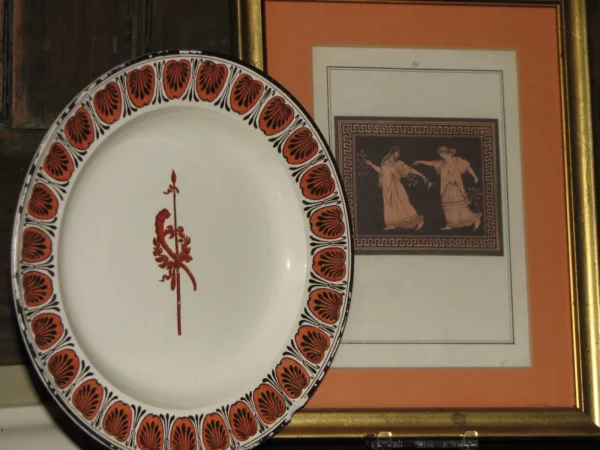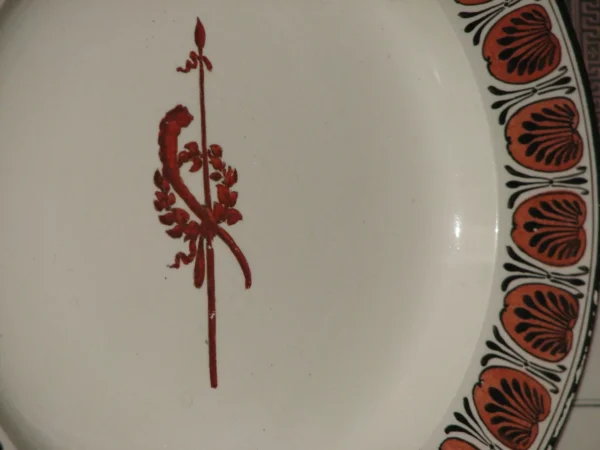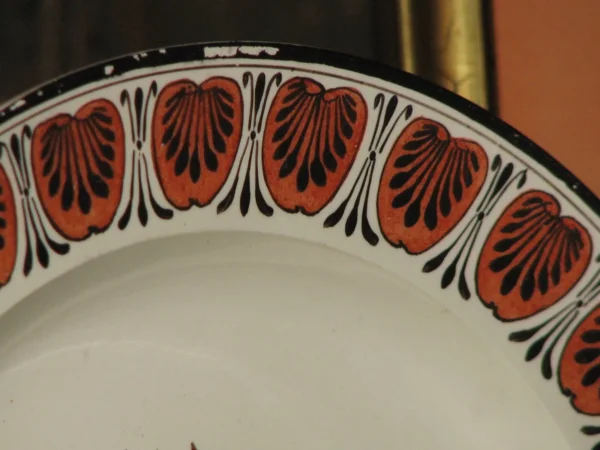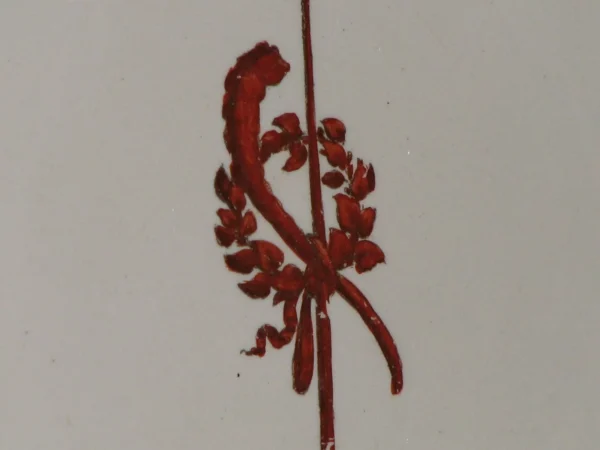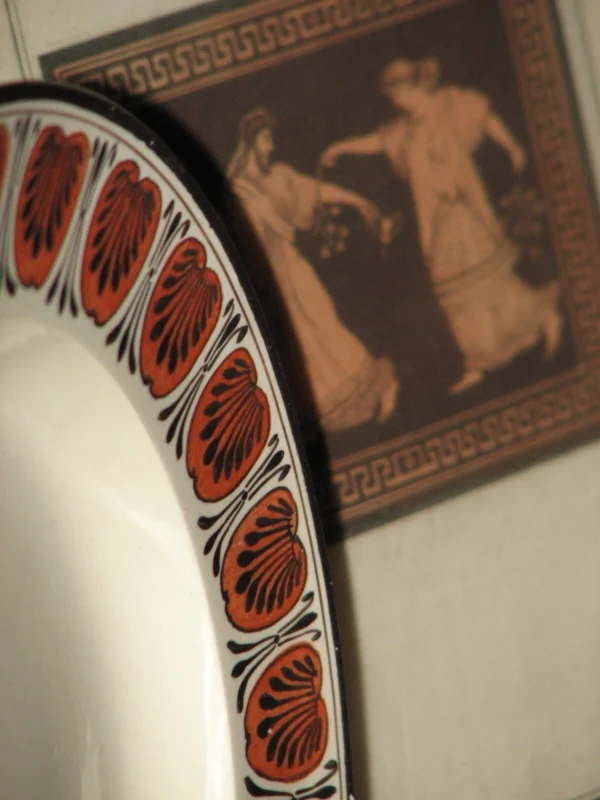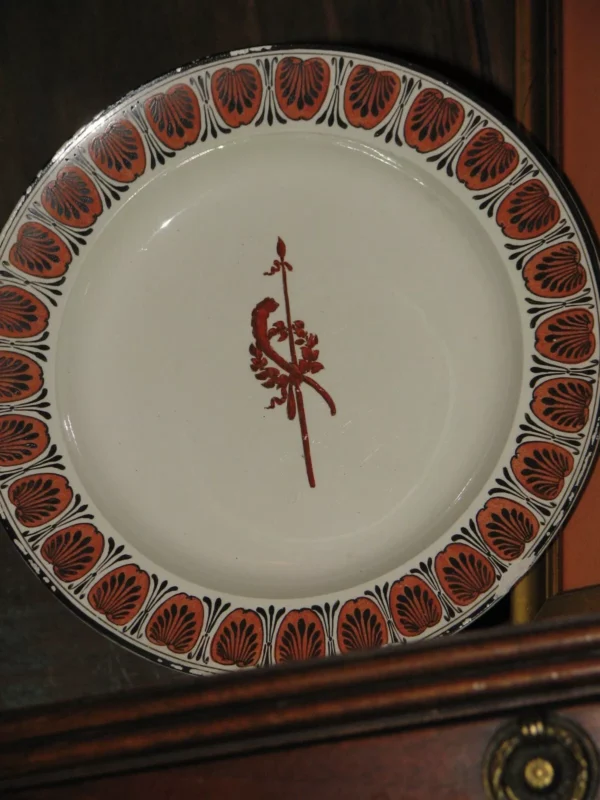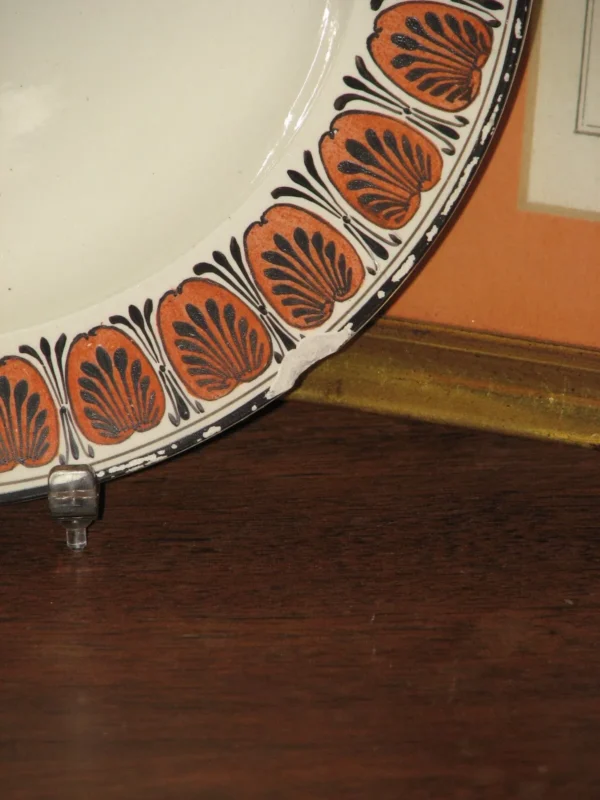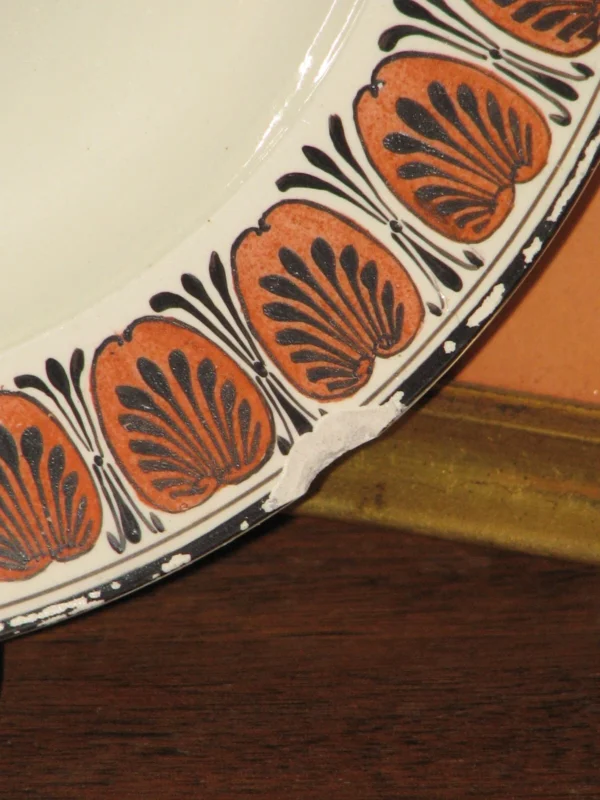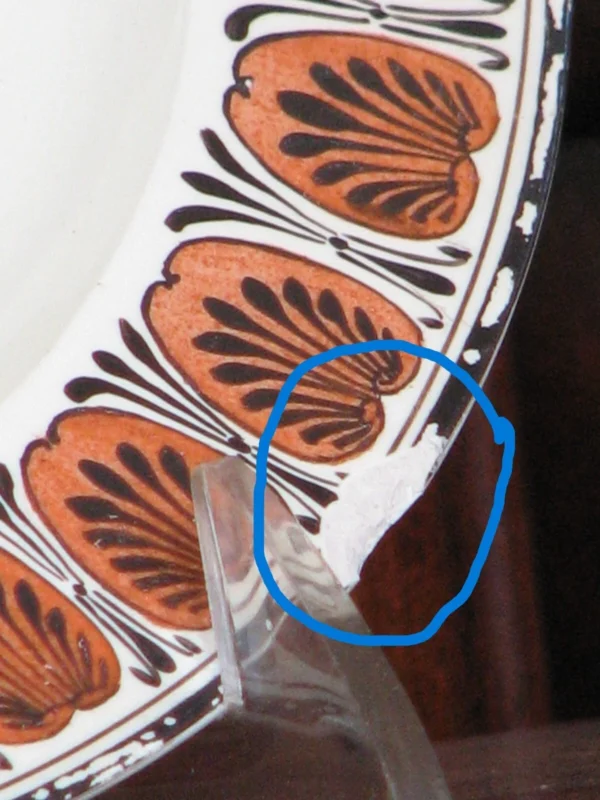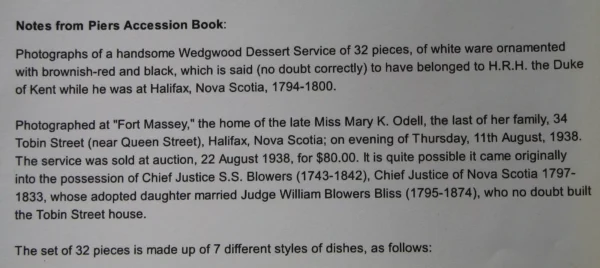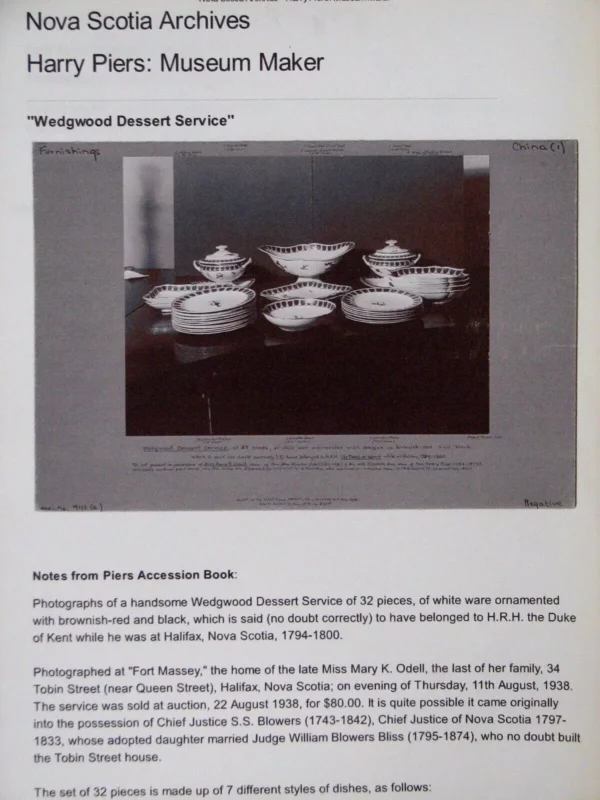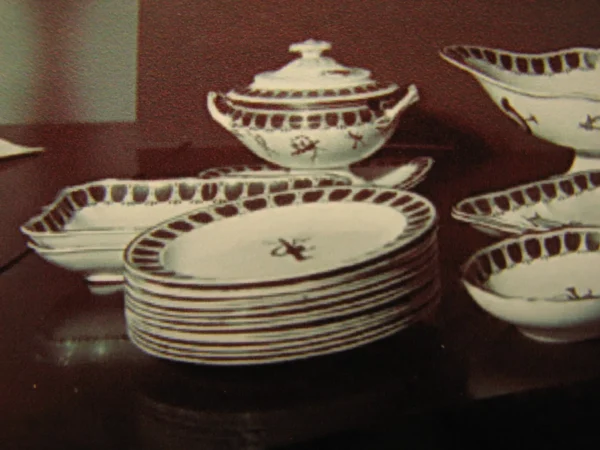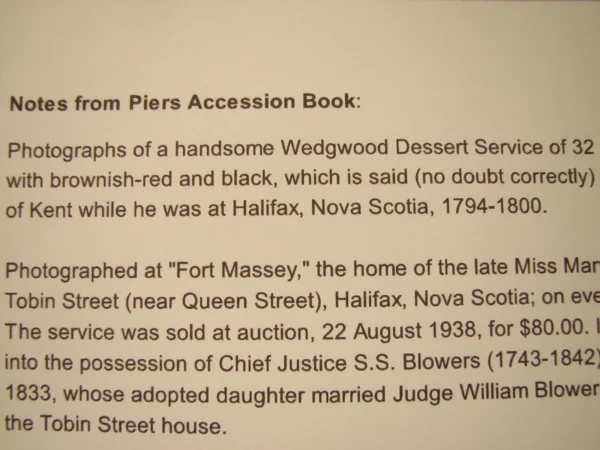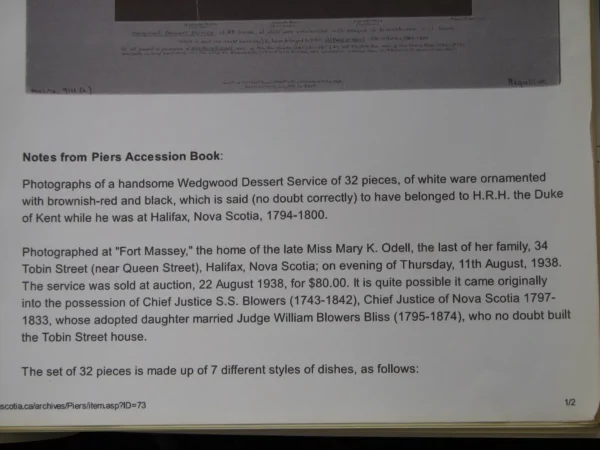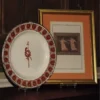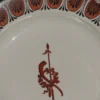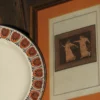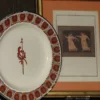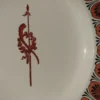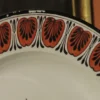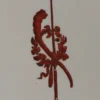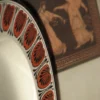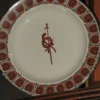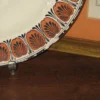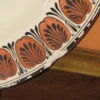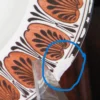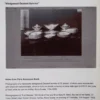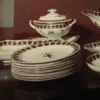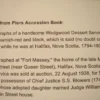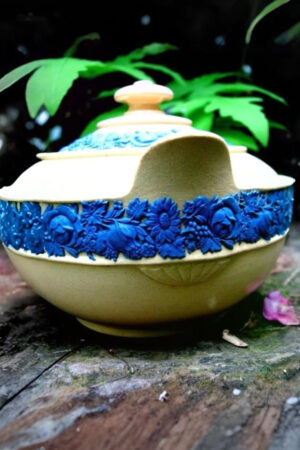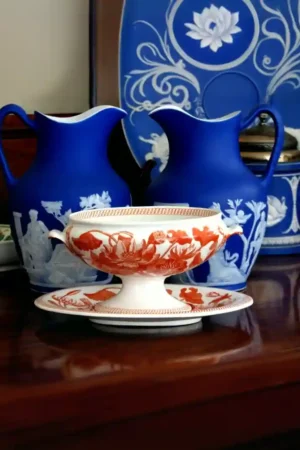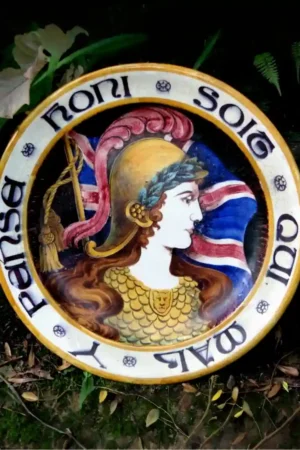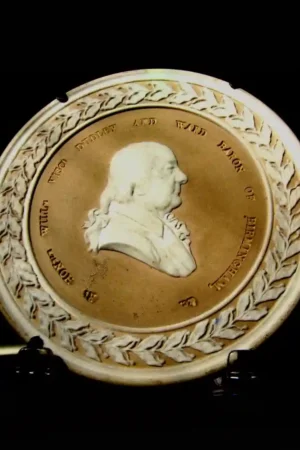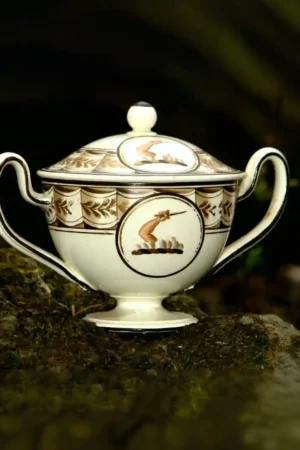Extremely Rare Wedgwood Small Encaustic Plate – Associated with Duke of Kent in Canada, Circa 1794–1800 – Museum Quality
A rare and historically significant Wedgwood small dessert plate, beautifully hand-painted in orange, red, and black on white creamware. This exceptional piece is reputed to have belonged to His Royal Highness Prince Edward, Duke of Kent and Strathearn, during his residence in Halifax, Nova Scotia, Canada from 1794 to 1800.
Historical Background:
Prince Edward, Duke of Kent (1767–1820), fourth son of King George III, served as commander-in-chief of British forces in the Maritime Provinces of North America. Notably, he coined the term “Canadian” to unite French and English settlers and is regarded as the “Father of the Canadian Crown.” His time in Lower Canada and Nova Scotia adds exceptional provenance to this rare Wedgwood piece.

Details:
Material: White creamware with hand-painted brownish-red, orange, and black encaustic decoration
Markings: Wedgwood mark with potter’s marks (as shown)
Size: Approx. 8 inches (20.3 cm) diameter
Date: Circa 1794–1800
Condition:
Good condition for age and historical use
Edge features black painted border with some paint flaking
One side chip visible (see pictures)
No cracks or major restoration
Rarity & Notes:
This plate is a rare museum-quality collector’s item, notable for both its exceptional encaustic craftsmanship and its direct historical association with the Duke of Kent in Canada. The final photos include provenance information from the Nova Scotia Museum, enhancing its authenticity and appeal to serious Wedgwood and historical collectors.
Please note: The William Hamilton encaustic framed piece from the Polickoff Collection shown in some photos is not included in this sale.

